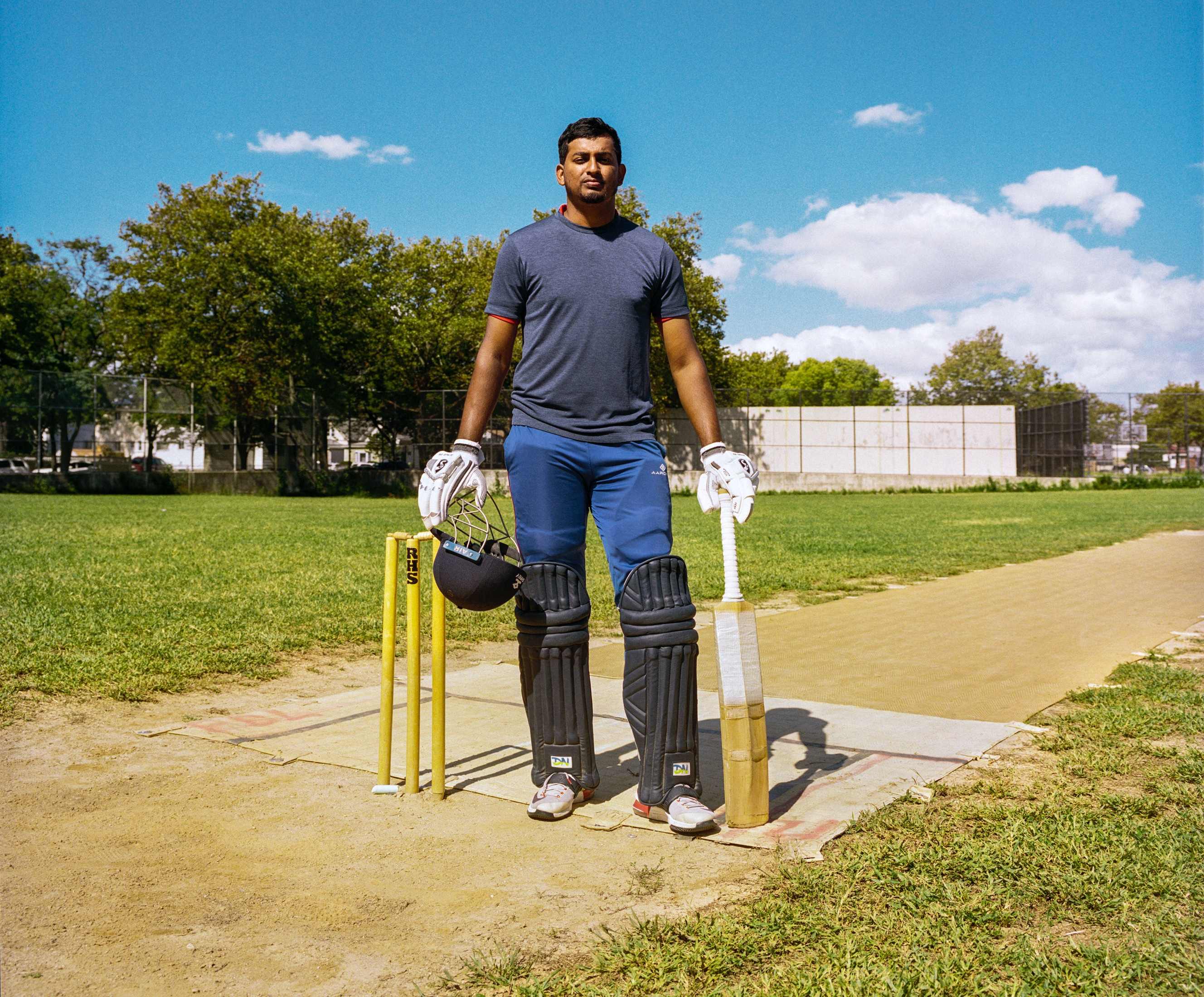Ancestral Grounds: How This NYC Cricketer Honours His Caribbean Heritage
Athletes*
When Derick Narine moved from Guyana to New York City, his love of cricket, and its community, came with him.

"Snapshots" is a series that checks in with neighbourhood athletes around the world.
"Snapshots" is a series that checks in with neighbourhood athletes around the world.
From the moment he could hold a bat, Derick Narine was obsessed with cricket. By the time he was a teenager, he was representing his country, Guyana. Then, after moving to New York at the start of high school, he took his team to its first cricket championship. But Derick's connection to the game goes deeper than accolades. Cricket runs in his family, and each time he walks out to bat, he feels connected to the long line of ancestors who have done the same across generations.
At the Baisley Pond Park Cricket Pitch in Jamaica, Queens, Derick tells us about the cultural differences of playing cricket in New York and Guyana, and how, in spite of everything, the game always manages to bring people together.
What was your introduction to cricket?
Well, my ancestors were brought [to Guyana] as slaves from India to work in the sugar industry. India (and England) is where cricket began, so if you come from there you must know how to play, or have some kind of knowledge about it. When [my ancestors] came to Guyana, it just passed down from generation to generation. As soon as you can hold a bat, they're going to take you to the park and teach you how to play. You first start out playing for your village. From there, you get selected for the entire district. I played and I got selected for the country. I played for Guyana at age 16.


You moved to New York for high school. What was that like?
I was excited. All of those things you see on TV, movies and everything. When I got here, it was totally different, especially living in Queens. I thought we were going to have a house, a nice back garden and all this stuff, but everything is so clustered. It wasn't what I imagined.
Did you think you'd be able to play cricket in New York?
I didn't expect to play cricket, because I'd never heard anything about cricket [being played in the US]. One of the guys, when I started high school, he used to live right next to me in Guyana. I went to John Adams High School, and he told me there's a cricket team. I went to try out and for a session, and the coach [made me] captain. We played and won the championship. [It was the] first time ever John Adams won the championship.

What's the atmosphere like here in Queens? Any trash talking?
It all depends on who you play against. When you play against the Indians, they don't really say much because even if they say stuff to you ... My ancestors came from India, but I don't speak their language, so I don't understand anything. When you play against the Jamaicans, they curse you. They tell you all kinds of stuff, but they have to say it in a way where the match referee can't hear because they can be penalised. We don't take it to heart because we can say the same thing back to them, but it [sometimes] gets to you because if you're on a defensive role you just want to block the ball so your partner can hit.
What are the pitches like in New York?
We play all over. The pitches in Kissena [in Flushing, Queens] are the worst. There's so many holes right behind where you bat. And there's a big pond, so if the wicket keeper misses the ball, the ball goes all the way in the water. Then you have to take a stick and try to get it out and the ball is wet and it swells.
"With everything that's going on, [people are] still playing cricket".
What is the cricket community like?
After the game, the [opposing] team comes over and congratulates you. They're like, "Yo, you're a good player. What's your Facebook? What's your Instagram? We're going to chat, I want you to give me a few tips on this, a few tips on that". When these big games come, everybody comes out to show their support. Cricket brings a lot of people together. With everything that's going on, [people are] still playing cricket. Everybody is still coming together.
Words: Sam Hockley-Smith
Reported: September 2020